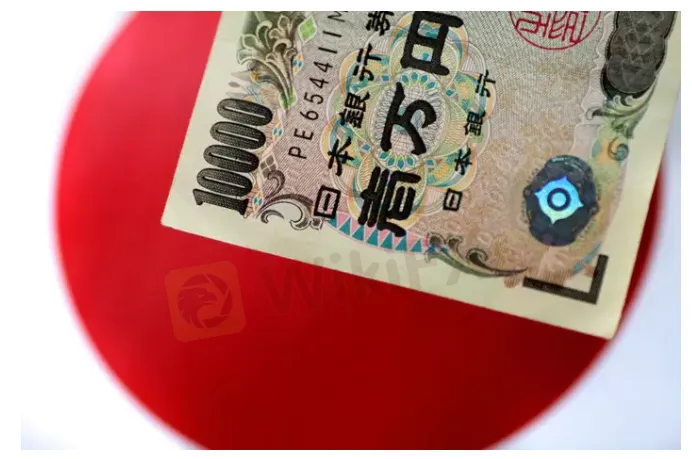简体中文
繁體中文
English
Pусский
日本語
ภาษาไทย
Tiếng Việt
Bahasa Indonesia
Español
हिन्दी
Filippiiniläinen
Français
Deutsch
Português
Türkçe
한국어
العربية
Japan has little to cheer on weak yen, says former currency diplomat Furusawa
Abstract:Japan has little to cheer about a weak yen, which reflects its deteriorating economic fundamentals and trade deficit, the countrys former top currency diplomat Mitsuhiro Furusawa said.

But monetary policy is not the right tool to curb yen falls, Furusawa said, brushing aside speculation that recent yen declines might prompt the central bank to raise interest rates.
“It‘s not good if the value of a country’s currency keeps sliding,” Furusawa told Reuters on Thursday, describing the weak-yen trend as reflecting Japans waning competitiveness.
“Responding to a weak yen with monetary policy isnt right,” he said, adding that the Bank of Japan will keep interest rates ultra-low to ensure inflation sustainably hits its 2% target.
Furusawa oversaw Japan‘s currency policy in 2013-2014, when BOJ Governor Haruhiko Kuroda’s “bazooka” stimulus pushed down the yen and bolstered shares. His remarks point to changes in how Tokyo policymakers see a weak yen – once welcomed as giving Japans export-reliant economy a boost.
The yens real, effective exchange rate – an indicator that captures the international competitiveness of a currency – has slid to less than half the peak level of 150 hit in 1995.
The Japanese currency has lost around 8% against the dollar in March, dropping to a six-year low below 125 on Monday.
Some market players see 125 yen to the dollar as a level that raises alarm among Japanese authorities, as a previous drop to that level triggered verbal warnings by BOJs Kuroda.
But Furusawa said the speed of yen moves, rather than the currencys level, were more important for policymakers in deciding whether to intervene in the market.
The dollars spike to 125 yen on Monday was “quite big,” which is why incumbent currency diplomat Masato Kanda toned up his warning the following day, Furusawa said.
“Its meaningless to set a certain line-in-the-sand for currency levels,” said Furusawa, who retains close contact with overseas and incumbent Japanese policymakers.
After his stint at Japan‘s finance minister, Furusawa served as deputy managing director of the International Monetary Fund until 2021. He is currently president of the Institute for Global Financial Affairs at Japan’s megabank SMBC.

Disclaimer:
The views in this article only represent the author's personal views, and do not constitute investment advice on this platform. This platform does not guarantee the accuracy, completeness and timeliness of the information in the article, and will not be liable for any loss caused by the use of or reliance on the information in the article.
Read more

XTB Hack 2025: Major Security Breach Exposes Client Accounts
XTB suffers a major hack in 2025, with hackers draining client accounts and sparking urgent security upgrades. Learn how the breach unfolded and what’s next.

XTB Hack 2025: Major Security Breach Exposes Client Accounts
XTB suffers a major hack in 2025, with hackers draining client accounts and sparking urgent security upgrades. Learn how the breach unfolded and what’s next.

Want to Succeed in Forex? Start with the Right Trading System
If you want to trade currencies and make money in the long run, you need a good forex trading system. Many new traders enter the market without a clear plan. Some rely on luck or tips from others. But trading without a system often leads to losses.

Mumbai Police Nabs Black Paper Dollar Conversion Forex Scam Perpetrators: Check Out the Details
The crime branch of the Mumbai Police has nabbed a racket involved in duping people by claiming to convert black paper into dollars. Check this unique 24.7-lakh scam story.
WikiFX Broker
Latest News
What is a Pip in Forex?
xChief: A Closer Look at Its Licenses
FXTRADING.com: A Closer Look at Its Licenses
New to Forex Trading in India? Here's How You Can Start and Maximize
Intel spins out AI robotics company RealSense with $50 million raise
Tom Lee's Granny Shots ETF is crushing the market and raking in cash
Risk Involved with Cabana Capital – Every Trader Should Know
XTB Hack 2025: Major Security Breach Exposes Client Accounts
Nvidia's Jensen Huang sells more than $36 million in stock, catching up with Warren Buffett in net worth
These are America's 10 weakest state economies most at risk in a recession
Currency Calculator


